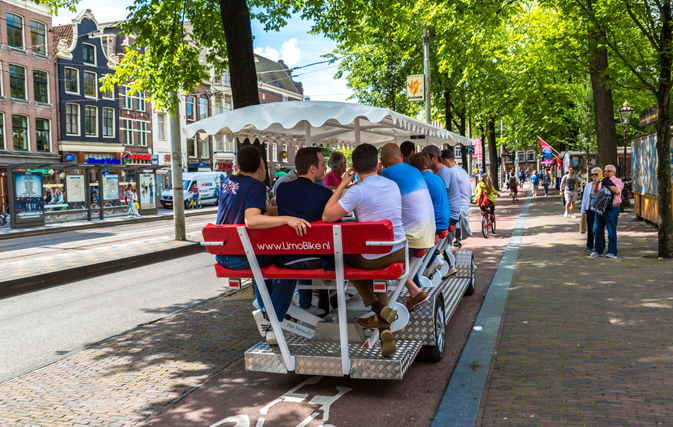AMSTERDAM — Hordes of tourists are derailing daily life in parts of historic Amsterdam. Visitors clog the city’s narrow streets. Stores catering only to tourists edge out shops for locals.
Every weekend, the heart of the city is overrun by foreigners in strip joints and seedy bars. They gawk at prostitutes in the red-light district and jam cafes where marijuana is permitted.
It’s not just tourists on budget airlines, staying at cheap hostels and hotels. Add crowds of day-trippers from cruise ships and Airbnb guests dragging suitcases along cobbled streets.
Among the many changes Amsterdam has enacted or is considering: halting construction of new hotels; banning “beer bikes,” which are large, slow, pedal-powered bars; shifting the cruise ship terminal out of the city centre and outlawing new tourist-only stores in the oldest part of the city and its busiest shopping streets.
One of the biggest deals was with Airbnb, which agreed to enforce a 60-day-per-year limit on Amsterdam properties and to collect tourist tax for the city from renters.
Another proposal is to change the way the tourist tax is levied, from a percentage of hotel room rates to a flat rate. That would hit lower-priced rooms harder and perhaps be a disincentive to budget travellers. Changing the tax formula might encourage more growth “from the higher end of the market and less of that growth will come from the lower end of the market,” Koch said.
But Hodes says the tax plan and other measures are not enough.
“It’s all symbolic. The problem is radical and the only way to change radical problems is radical solutions,” he said.
Hodes advocates a halt on building new hotels, not just in Amsterdam but also in the region around the city, ending cruise ship tourism and rigorously enforcing a recently approved ban on touring cars entering the city.
But he concedes that overtourism will be a tough beast to tame.
“No one (anywhere in the world) has come anywhere near solving this problem,” Hodes said. “The problem is much bigger than we’re able to handle at the moment.”
